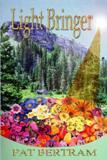Pat Bertram's Blog, page 258
September 21, 2012
My 1000th Blog Post!!!!
 This is my 1000th blog post for this blog, and what do you know. I haven’t a thing to say. You’d think after writing 1000 articles on subjects that range from reading to writing, from being in grief to being in the moment, from social networking to socializing, I’d be able to come up with a few pithy words to celebrate the occasion, but here I am, at a loss for ideas.
This is my 1000th blog post for this blog, and what do you know. I haven’t a thing to say. You’d think after writing 1000 articles on subjects that range from reading to writing, from being in grief to being in the moment, from social networking to socializing, I’d be able to come up with a few pithy words to celebrate the occasion, but here I am, at a loss for ideas.
You’re probably curious how I managed to write all those articles — well, it took five years, one topic at a time, one word, at a time. You can see all the posts here: Archives — All My Posts.
Here are are a few of my favorite posts, though to be honest, a list of my favorites would include either my entire ouevre or merely the last one I wrote. I enjoyed writing all of them, and at the time of writing, each was my absolute favorite. Life changes, though, and so does perspective; what once seemed profound later seems merely mundane.
The Slang Game

Write Lofty and Carry a Big Chisel
How Often Has This Happened To You? (Close Encounters Of the Buffalo Kind)
What Kind of Blogger Are You?
Sports As Story
A Terrible Writing Accident
The Living Language of Dying
Pat Bertram And Lazarus Barnhill Discuss Writing as Destiny
Waiting For an April Time
Self-Editing — The List From Hell
Creatures of the Corn
On Writing: Looking Up
Free Exclamation Points for Everyone!!!
The Slamming of the Doors
These posts are all from my first couple of years of blogging. I don’t remember why I wrote some of them, such as The Slamming of the Doors, perhaps as a writing prompt. Others I had fun creating, such as my list of bloggers in What Kind of Blogger Are You? and my quiz The Slang Game, and I was disappointed at how few people ever saw the posts.
Thank you, everyone, who has read any of my posts or commented on them. It’s been a pleasure blogging with you.
Tagged: 1000th blog post, blog archives, blogs, pithy words, writing blogs

September 20, 2012
Using the Whole Sphere of my Being
 In a yoga class I took yesterday, the teacher made a comment that caught my attention. She said that we live in a personal sphere, the space taken up by outspread arms and legs. As we age and become more fearful of missteps, we shrink into the center of our spheres, shortening our stride, hunching into ourselves.
In a yoga class I took yesterday, the teacher made a comment that caught my attention. She said that we live in a personal sphere, the space taken up by outspread arms and legs. As we age and become more fearful of missteps, we shrink into the center of our spheres, shortening our stride, hunching into ourselves.
Even if we’re not to the point where age is making us shrink into that sphere, our sedentary ways certainly do. Here I am sitting at a computer, taking up very little space, making tiny movements of fingers, eyes, head. Not exactly using the whole sphere of my being, am I? So I paused, stretched out my arms, and suddenly I’m not so hunched into my space any more, and I feel a tad more alert.
Grief has the effect of drawing us away from the outer limits of that sphere, too. Life has dealt us the worst blow of all when it removes the one person who connects us to the world, and we shrink from additional punches.
As my grief has waned, I have tried to open myself up to the world, going out to the desert, flinging my arms wide, taking deep breaths, but until now, I’ve never paid any attention to my personal sphere. A beautiful image, isn’t it? Living in our own sphere, on the sphere of the earth, in the sphere of our solar system, on the edge of the sphere of our galaxy. Okay, so the galaxy isn’t a sphere, but still, it’s an interesting concept, all these spheres within spheres.
It doesn’t take any training to live more fully within one’s sphere. All we have to do is unfold our arms, raise our ribcage, lift our head, roll back our shoulders, take longer strides. I tried taking longer strides today while out walking, and it felt good for the first twenty minutes or so, and then — ouch, ouch, ouch. I could feel the painful stretch of my inner thighs. Apparently, without my even being aware of it, I’ve been taking smaller and smaller steps.
I will keep at it and see where this awareness of my personal sphere takes me. Perhaps it will help me live more expansively, maybe even help me think more expansively. At the very least, using more of my personal space will help my posture, and that in itself is not a bad thing.
Tagged: better posture, our personal sphere, shrinking into ourselves, taking longer strides, using more of our personal space

September 19, 2012
There is No Journey Through Grief
 People often talk of the journey through grief. (I myself have iterated this adage.) During the past few months as my grief is waning, I’ve come to see that there is no separate journey through grief. There is only the journey through life. Grief accompanies us part of the way, maybe even most of the way, though not always with the intensity of new grief. Grief, in fact, has driven me through the steep rocky path of my life during the past few years, first a numbing grief at my life mate/soul mate’s dying, and then later, a soul-shattering grief at his death.
People often talk of the journey through grief. (I myself have iterated this adage.) During the past few months as my grief is waning, I’ve come to see that there is no separate journey through grief. There is only the journey through life. Grief accompanies us part of the way, maybe even most of the way, though not always with the intensity of new grief. Grief, in fact, has driven me through the steep rocky path of my life during the past few years, first a numbing grief at my life mate/soul mate’s dying, and then later, a soul-shattering grief at his death.
Like many bereft, I was not always sure I want to continue living, but I wasn’t particularly ready for death, either, so I did the only thing I could do — continue my journey, taking each day as it comes, trying new things, finding comfort in knowing that nothing lasts forever.
By sheer waves of happenstance, I’ve been temporarily beached in a residential area that borders the desert. (If you have been following the Second Wind online collaboration called Rubicon Ranch, you will be familiar with this community, though so far, unlike my hapless alter ego, widow Melanie Gray, I have not yet stumbled upon body parts out in the desert.)
Someday, those waves of chance might sweep me into other climes, so I am making sure I use this opportunity to get to know my desert self. There are few frills in the desert, no vibrant colors or showy flowers (though brilliant cactus flowers do bloom in the spring). There are just stark hills, creosote bushes, hard-packed sandy soil. The bleak landscape suited me when I first came here, sodden with tears and steeped in pain, and it suits me still. There is peace in starkness — no particular sight rivets my attention, no exotic sounds or aromas tantalize my senses. There’s just me, the hills, the air I breathe.
Other waves of happenstance landed me in a yoga class. The teacher has a different approach, focusing not on the forms so much as breathing and being. That, too suits me.
I’ve added a few of those exercises to my morning perambulations. I stand out in the desert, away from the things of humankind, open my arms and breathe in the desert. In that moment, I am happy. There are no shadows of grief, no sad memories or niggling fears. There’s just me, believing I am where I am supposed to be.
Tagged: breathing, dealing with grief, desert peace, grief and loss, journey through grief, yoga

September 18, 2012
Why the Struggle to Write?
 While checking my Facebook feed yesterday, which is mostly comprised of updates by other authors, it struck me how many of them are struggling with writing. They are struggling to find the time to write. They are struggling to reach word-count goals. They are struggling to overcome writer’s block. So much struggling!
While checking my Facebook feed yesterday, which is mostly comprised of updates by other authors, it struck me how many of them are struggling with writing. They are struggling to find the time to write. They are struggling to reach word-count goals. They are struggling to overcome writer’s block. So much struggling!
One writer posted an article about how to find the time to write, and the post had such a drill sergeant approach that it appalled me. The point of the article was that we must find time to write every day, and to do so we might have to sacrifice an outing with a friend, a trip to the movies, and other such “treats.”
Why? What is so important about writing that we need to forego time with family and friends in order to string a few words together? Truly, it is an unimportant skill. It can’t comfort a crying baby, can’t smile at a friend, can’t add another minute to a dying man’s life. It’s an inherently selfish activity since it’s about communing with ourselves. It’s also an unhealthy activity because we sit with limited motion for hours at a stretch. The hope is that ultimately others will read and understand what we write (and so understand us), and perhaps even allow us to make a living from our efforts, but still, writing is communication at one reserve. We are not sitting conversing with a loved one, and to supplant such a real conversation in the now with one in our heads seems a paltry trade.
Of course, if you have a contract that must be fulfilled, that is one thing, but if you are merely writing to satisfy yourself (and if you’re not, what’s the point of writing?) that is something completely different.
I can hear you now. “But I have to write!” If writing fulfills a need, then you don’t need to be urged to write — you are already doing it. If you have to write but don’t, then obviously, you don’t have to write. The world is not coming to an end because you are not writing. It hums along just fine without your words.
Many people do feel more in tune with themselves when writing, and why not? It’s therapeutic to let all the built-up words and pent-up emotions flow out of your head, just as blowing out a deep breath lets pent-up stress flow out of your body. And yet, for some people, such as mothers with small children and a demanding outside job, there simply is no time. To make such writers feel as if they are doing something wrong by not writing every day is unconscionable. For other people, such as those caring for a dying spouse or an aged parent, they might have the physical time but not the mental time — they might not be able to let themselves get immersed in their writing since their inattention could have disastrous results.
Nowadays, books aren’t even a physical thing — they are merely stray electrons temporarily held together by creative energy. So why the struggle to write? I truly don’t know. It seems simple to me: write, or don’t write.
For me, writing is a tool I use to help me make sense of life. It’s a means of being creative, a way of being playful, even, but writing is not life. Living is what’s important. If I don’t live, sense, experience, there’s nothing to write about. When I don’t feel like writing, I don’t struggle to overcome that feeling, and I certainly don’t let drill sergeant tactics make me feel bad about not writing every day. I know the truth: it’s not how much you write that makes you a writer, but what you say.
So I go with the flow, being me, living each day as it comes, and eventually, when the time is right, when I have something to say, I simply start writing.
Tagged: finding time to write, need to write, struggling to write, why write, writing as therapy

September 17, 2012
Who gave you the best writing advice you ever received and what was it?
 The best writing advice I ever received I read in an old book called The Practical Stylist by Sheridan Baker: “Clarity is the first aim; economy the second; grace the third; dignity the fourth. Our writing should be a little strange, a little out of the ordinary, a little beautiful with words and phrases not met everyday, but seeming as right and natural as grass.”
The best writing advice I ever received I read in an old book called The Practical Stylist by Sheridan Baker: “Clarity is the first aim; economy the second; grace the third; dignity the fourth. Our writing should be a little strange, a little out of the ordinary, a little beautiful with words and phrases not met everyday, but seeming as right and natural as grass.”
Isn’t that beautiful? I paid particular attention to that advice when writing Light Bringer. I wanted the style itself to show that the characters were a little strange, a little out of the ordinary, a little beautiful. For example, “And then there it was, spread out before her in a shallow thirty-foot bowl. A lake of flowers — chrysanthemums and tulips, daisies and daffodils, lilies and columbines and fuchsia — all blooming brightly, all singing their song of welcome.”
Here are some responses from other authors about how the best writing advice they ever received. The comments are taken from interviews posted at Pat Bertram Introduces . . .
From an interview with Sheila Deeth, Author of “Flower Child”
I met Jane Kirkpatrick shortly after we moved to Oregon. She told me to keep writing. In fact, she’s told me several times to keep writing. It’s probably the most valuable piece of advice I’ve had.
From an interview with Eric Wasserman, Author of Celluloid Strangers
Frederick Reiken’s literature course on the short story was my very first graduate school class. The very first thing he said to all of us was, “If you’re not willing to submerge yourself in the world of reading fiction, give up now on being a serious writer of fiction.” I wrote this down the moment he said it, went back to my dingy Boston studio apartment that evening, and taped it across the screen of my TV.
From an interview with Sandra Shwayder Sanchez, Author of “The Nun”
The best advice I ever received was from J.R. Salamanca (Lilith, A Sea Change, Embarkation, Southern Light and more) who said the permanence of the written word has more influence on readers than spoken words and to take that influence seriously and try to create a good influence and that is the advice I would give aspiring writers.
What about you? Who gave you the best writing advice you ever received, and what was it?
(If you’d like me to interview you, please check out my author questionnaire http://patbertram.wordpress.com/author-questionnaire/ and follow the instruction.)
Tagged: advice to aspiring writers, Frederick Reiken, J.R. Salamanca, Jane Kirkpatrick, writing advice, writing style, writing tips

September 16, 2012
Yet Another Saturday, My Sadder Day
 Yesterday was Saturday, my sadder day. The love of my life died one Saturday almost two and a half years ago, and I have not yet managed to get completely over it. You don’t ever get over such a grievous loss, of course, but you can come to an accommodation with the absence, develop a new focus, perhaps even find happiness. It just takes a very long time — three to five years, or so I’ve been told. I’m doing well, all things considered, but I still struggle to find my way.
Yesterday was Saturday, my sadder day. The love of my life died one Saturday almost two and a half years ago, and I have not yet managed to get completely over it. You don’t ever get over such a grievous loss, of course, but you can come to an accommodation with the absence, develop a new focus, perhaps even find happiness. It just takes a very long time — three to five years, or so I’ve been told. I’m doing well, all things considered, but I still struggle to find my way.
I loved him with all my being, and I continue to love him. My love for him has no outlet — I can no longer do anything for him or with him — so his share of my love fills my heart like a pool of unshed tears. I try to use that love to propel me into my future, knowing he wouldn’t want me to be sad for him, but the truth is, he has no say in the matter. (I don’t always a have a say, either — grief comes and goes as it pleases, following a timetable I seldom understand.) He’s gone, and that goneness continues to shadow my life. I feel his absence like an itch deep in my soul. I feel it in the world around me, in the very air I breathe. I’m practicing being part of the world, planting my feet on the ground, feeling connected to my self and my surroundings. Still, the world feels alien with him not in it.
I’ve come a long way from the shattered woman who screamed her pain to the uncaring winds. I’ve made new friends, seen amazing sites, tried different activities, sampled exotic foods, wrote hundreds of blogs, walked more than a thousand miles. I’ve done the best I can to life fully, but the truth is, I’m tired. I’m tired of his being dead, tired of having to put a positive slant on a situation that has no upside, tired of trying to live whole-heartedly with half a heart. Just . . . tired.
I’m not young anymore, but I’m not old, either. Sometimes the future yawns before me like a bleak and empty landscape. Most times, of course, I can look to the future with hope, though I probably will always be saddened and bewildered by his goneness, especially on Saturday, my sadder day.
Tagged: dealing with grief, grief and loss, grief's timetable, living whole-heartedly with half a heart, love after death, Love and grief, sadder day

September 15, 2012
A Place Where I Can Connect With Myself And The Mystical World
 It’s amazing we ever manage to communicate with each other, considering that different words mean different things to different people. We do have common ground, though, so perhaps that keeps us connected. We know basically what words mean, such as “desert,” “reading,” “writing,” but we also imbue the words with our own connotations, and that’s where it gets interesting.
It’s amazing we ever manage to communicate with each other, considering that different words mean different things to different people. We do have common ground, though, so perhaps that keeps us connected. We know basically what words mean, such as “desert,” “reading,” “writing,” but we also imbue the words with our own connotations, and that’s where it gets interesting.
For most people around where I am staying, “desert” means a place of rattlers, a place to ride dirt bikes, ATVs, and other noisemaking machines, a place to honk their dogs. (That’s what I call it anyway. They let their dogs run free and drive behind them, honking to keep the animal from straying too far.). But for me, “desert” means a place away from the bustle of everyday life, a place where i can connect with myself and the mystical world around me, a place where I get in touch with the truth inside me (the truth that resides in all of us.) Even those who do see the desert as a place away from every day life, see it as a place to run, all the while connected to an ipod or whatever is connected to those wires coming out of their ears.
For most people, “reading,” fiction, in particular, means entertainment, a way to kill a few hours, an indulgence in fantasy. There’s nothing wrong with that, of course — it makes people happy and fuels the book industry — it’s just not what reading means to me. For me, “reading” means a place away from the bustle of every day life, a place where I can connect with myself and the mystical world of books, and get in touch with the truth inside me. It came as a real shock when I discovered that’s not what reading means to others. It’s often true that people see reading as a place away from the bustle of every day life, but for most people it’s an escape from themselves, not an escape into themselves.
Writers each have their own meaning for the word “writing.” Most often it’s the same as reading — to entertain, to communicate with readers. Sometimes they don’t know what it means to them, except that it fulfills a need. Occasionally, it means a way of making money. It should come as no surprise that writing, for me, means a place away from the bustle of every day life, a place where I can connect with myself and the mystical world of my own story, and get in touch with the truth inside me. Writing bloggeries, such as this one, helps me figure out what I think, but writing fiction puts a “face” on what is inside me, creating a metaphor or a parable for my thoughts and experiences.
I’ve never been one to count words since the number of words don’t count. What counts is what the words say, what they mean. I’ve never been one to inform others of how my writing is going since the writing is for me. Once the book or bloggerie is published, however, it becomes something else, not something that was written so much as something to be read. Does that make sense? I might have walked too long in the desert this morning, and brought some of its mysticism back with me.
Tagged: communication, finding the truth, meaning of desert, meaning of reading, meaning of writing, writing fiction

September 14, 2012
Using Twitter the Wrong Way
 People tell me I tweet wrong. I use Twitter.com like a bulletin board, mostly posting links to my blogs, sometimes retweeting my publisher’s book links, and occasionally posting links to samples of my books. All that is considered spam, though what I post is closer to ham than spam — it has a bit of meat to it. But of course, it’s all in how you look at it. (Are unwanted posts really spam, though? When you are spammed in your email, you often have no recourse, but if someone posts things you are not interested in at a social networking site, you can unfollow or unfriend.)
People tell me I tweet wrong. I use Twitter.com like a bulletin board, mostly posting links to my blogs, sometimes retweeting my publisher’s book links, and occasionally posting links to samples of my books. All that is considered spam, though what I post is closer to ham than spam — it has a bit of meat to it. But of course, it’s all in how you look at it. (Are unwanted posts really spam, though? When you are spammed in your email, you often have no recourse, but if someone posts things you are not interested in at a social networking site, you can unfollow or unfriend.)
Most people seem to post the same sort of things I do, though some are heavy on quotes, some are heavy on retweeting, and others push their agendas (and books) incessantly, posting every few minutes. Yikes.
I once participated in a reciprocal promotion where each of us authors agreed to tweet everyone else’s book links several times a day every day for two weeks. Now that embarrassed me. I felt like a shill, particularly since I had no interest in the books. Still, I try to follow through on my promises, so I tweeted and tweeted and tweeted until I discovered that most of the others weren’t doing anything at all. That was the last time I ever did anything of the sort.
I’ve tried to do different things on Twitter, commenting on other people’s posts, joining in on discussions or starting discussions of my own, but I don’t see the fun in it, especially since few people ever respond. Those who do respond generally know me from Facebook, so it seems a duplication of effort.
So, if I’m using Twitter the wrong way, what is the right way? According to Twitter help, they are an information network, and “reading Tweets and discovering new information whenever you check in on your Twitter timeline is where you’ll find the most value on Twitter. Some people find it useful to contribute their own Tweets, but the real magic of Twitter lies in absorbing real-time information that matters to you.” They also suggest that you retweet and reply to other people’s tweets rather than tweet your own, especially those of celebrities you admire.
Truth be told, I often unfollow those who use Twitter “correctly.” I have no interest in “news” in 140 characters. For all the talk about grassroots news and news from the people themselves, most of the news articles that get retweeted into virality originate from the major media.
I also have no interest in celebrities, in pithy sayings, or one-liners. And I certainly am not interested in following private conversations. (Some people use twitter to keep in touch with their friends and families rather than text. Reading those texts makes me feel as if I am at a party where I know no one and no one knows me. Do people have no sense of privacy anymore?)
Hmm. Doesn’t leave much, does it?
I guess I’ll continue to use Twitter wrongly. After all, if anyone doesn’t like what I tweet, they are free to unfollow.
Tagged: best way to use twitter, purpose of twitter, reason to twitter, Twitter, twitter spam


September 13, 2012
Writing the Tough Stuff (Or Killing the One You Love)
Please welcome my friend, fan, and fellow author, Aaron Paul Lazar, who will be discussing killing the one you love — metaphorically and literarily speaking, that is. Aaron writes to soothe his soul. An award-winning, bestselling Kindle author of three mystery series, Aaron enjoys the Genesee Valley countryside in upstate New York, where his characters embrace life, play with their dogs and grandkids, grow sumptuous gardens, and chase bad guys. Aaron says:
It’s not easy writing a scene where you kill the one you love.
Of course I don’t mean your actual spouse or lover. I mean the wife, husband, or sweetheart of your main character.
I’ve done it in FOR KEEPS. Thinking about it tears my heart out every single time.
 That’s what I mean by “writing the tough stuff.” Sam Moore—a retired family doctor who is our resident hero in Moore Mysteries — is very much like me, except he’s twelve years older and retired with enough money to putter around in his gardens all day. Let me repeat that. All day!
That’s what I mean by “writing the tough stuff.” Sam Moore—a retired family doctor who is our resident hero in Moore Mysteries — is very much like me, except he’s twelve years older and retired with enough money to putter around in his gardens all day. Let me repeat that. All day!
I hate him for that.
Okay, so maybe that’s a little extreme, considering he’s fictional. Shall we say, I am exceedingly jealous of his lifestyle? Although Sam was a family doctor and I am an engineer, we’re still a lot alike. We both love to plunge our hands into the soft earth and grow things. We both love our grandkids so much it hurts. And we both have spouses with multiple sclerosis. There are plenty of differences, too. I cook, I write, and I take photos. Sam doesn’t. But of course, it’s not a competition. At least I don’t think so…
In spite of the fact that he’s not real (at least not in the traditional sense, LOL), I relate to this man and feel his pain when he’s hurting. Sure, you say, writers should feel ALL their characters’ pain. We have to, to get into their heads and nail the characterization. Don’t we?
But I’ll bet some characters are closer to your heart than others.
Sam’s wife, Rachel, shares many qualities with my dear wife, Dale. They both endure MS, they both love to read, they are both chair-caning artists. Some of their symptoms are the same, but that’s where they split apart. Rachel loves to cook (that’s my job in our marriage), she’s in a wheelchair, and she stays pretty upbeat, considering her challenges. They both adore their grandchildren and both love to read. Rachel’s a tribute to Dale, in all honesty. But she also has morphed into her “own woman,” too, and I love her deeply. Er . . . through Sam, of course. (Honey, don’t be jealous!)
In the first two books of theMoore Mysteries series, Rachel sticks by Sam’s side, supports him when he’s overcome with grief and is plagued by strange paranormal events, and loves him deeply enough to keep him sane.
That’s why it really hurt when I had to kill her.
In For Keeps, the third book in the series, life takes an awful turn. When Rachel is murdered by a serial killer, it puts Sam back in the psych ward, the same place he was thrown when his little brother disappeared without a trace fifty years earlier. Desperate to fix things, he calls on the power of the green marble, the talisman his little brother Billy controls from afar that whisks him back and forth through his past.
Unlike those of us in real life, Sam gets a “do over.” He flies back in time to desperately try to fix the problems that lead to this gruesome act, and over and over again, he attempts to tweak the past to bring his dear Rachel back to life.
How do you write such a scene without losing it? How do you make it feel authentic to your readers? How much is too much? And how can you be certain that your character’s reaction will ring true?
It’s not easy. Matter of fact, since I loosely base Rachel on my own wife, and since Sam and I are really quite alike, it was close to torture.
I called upon my darkest, most powerful emotions experienced when my father died and also when my own dear wife almost died several times in the past few years. I’ll never forget the time the nurse in the ER called the nun on duty to bring me to a little room where no one would see my reaction to her impending news that Dale might not make it. She carried a box of Kleenex under one arm and a bible in the other. She was so sweet. Yet it was one of the scariest moments of my life. Thankfully, my wife pulled through and is doing okay today.
That hollow-gut, black-sludge-in-your-heart feeling is horrible when you lose someone dear to you, isn’t it? It’s all encompassing. Sometimes you just want to deny that awful truth, and pull away — far away — like Sam does in the following excerpt. (Click here to read the Excerpt From “For Keeps” by Aaron Paul Lazar.) I tried to channel those feelings when getting inside Sam’s head. Let me know if you think it worked.
For Keeps is book #3 in Moore Mysteries, and is now available through Twilight Times Books and Amazon.com. The series can be read in any order. Free dates of “For Keeps”: Sept 14, 15, 16th and October 12, 13th.
copyright 2012, Aaron Paul Lazar
Tagged: Aaron Paul Lazar, For Keeps, kiling your favorite character, killing characters

September 12, 2012
I’m going to Blog for Peace. Will You?
 On Sunday, November 4, people all over the planet blog for peace. This year, I’m going to join the the Blog Blast for Peace, and you can join the movement, too. You make your own peace globe/statement or simply choose one pre-made at blogblastforpeace.com, and become – a peace blogger. http://goo.gl/wOaGs
On Sunday, November 4, people all over the planet blog for peace. This year, I’m going to join the the Blog Blast for Peace, and you can join the movement, too. You make your own peace globe/statement or simply choose one pre-made at blogblastforpeace.com, and become – a peace blogger. http://goo.gl/wOaGs
Peace bloggers believe that words are powerful, and that this matters. http://goo.gl/b01KH
So, check out the website or check it out on Facebook.
How To Blog For Peace The short version:
1. Choose any graphic on this page. http://goo.gl/4xepL Right click and Save. Decorate it and sign it, or leave as is.
2. Send the finished globe to blogblast4peace@yahoo.com
3. Post it anywhere online November 4 and title your post Dona Nobis Pacem (Latin for Grant us Peace)
Sounds cool, doesn’t it?
Tagged: Blog 4 peace, blog blast for peace, November 4, Peace Bloggers




